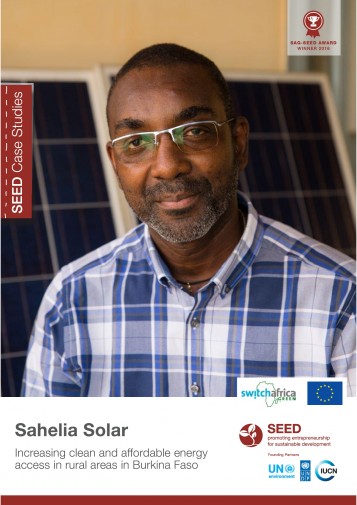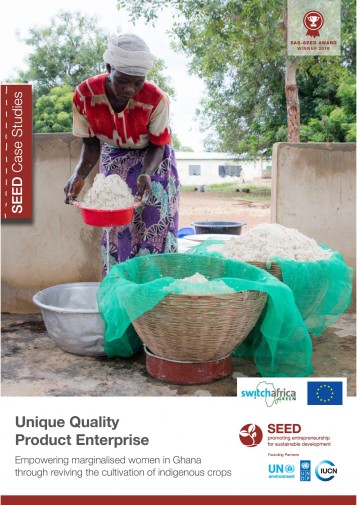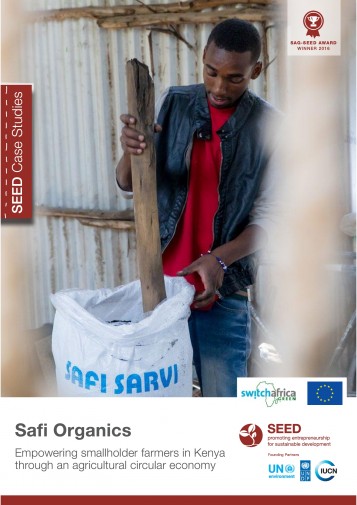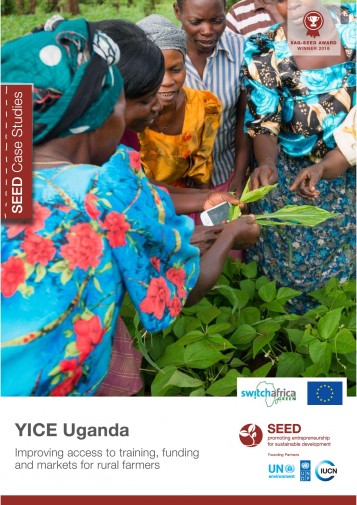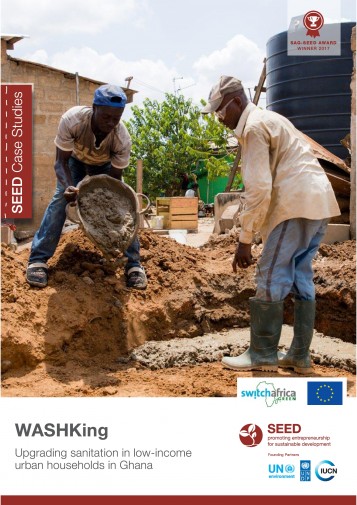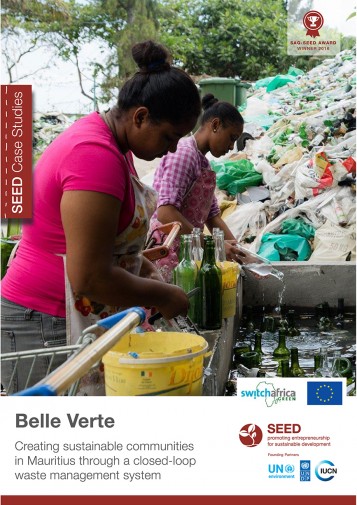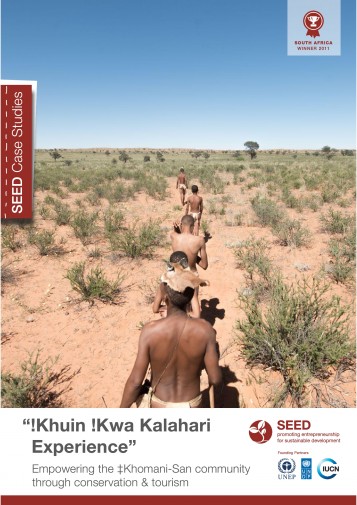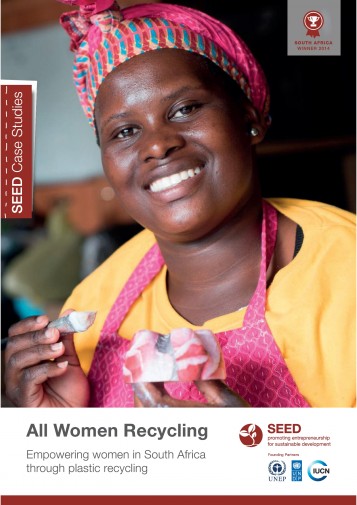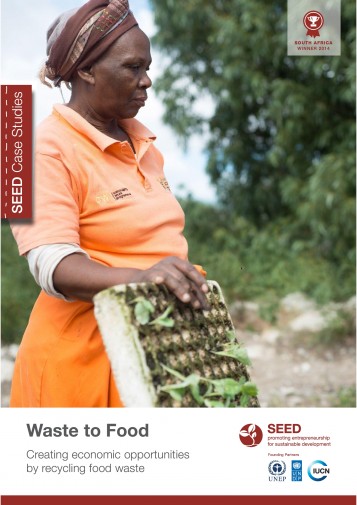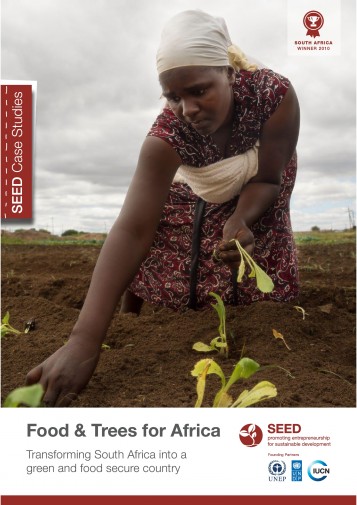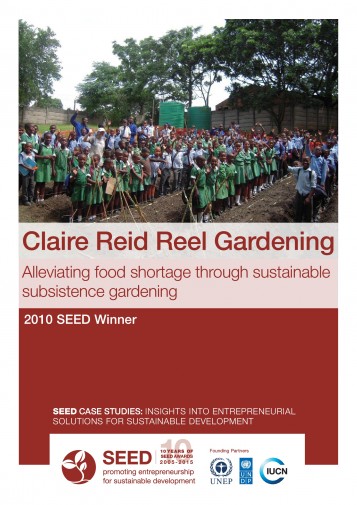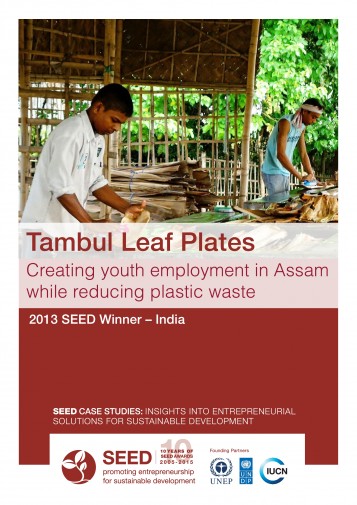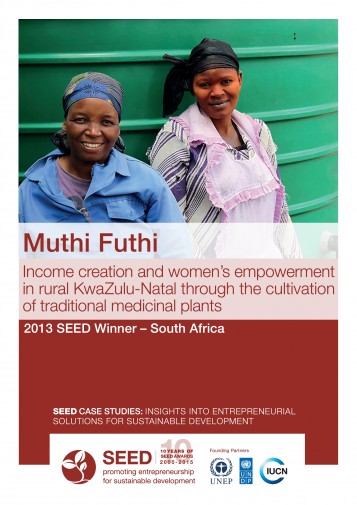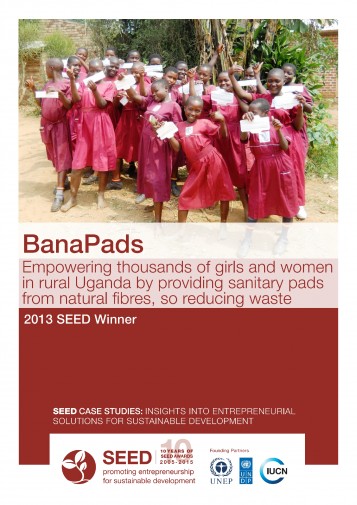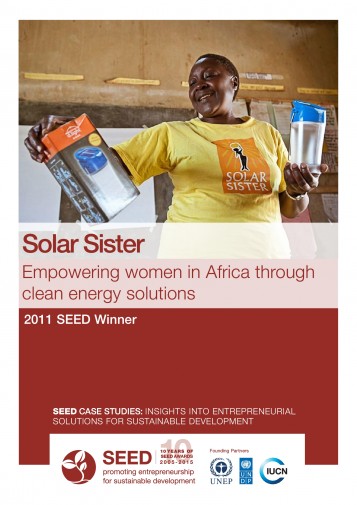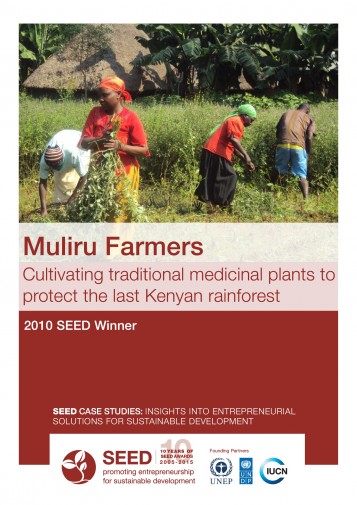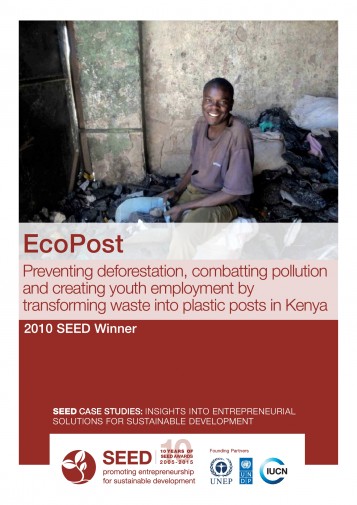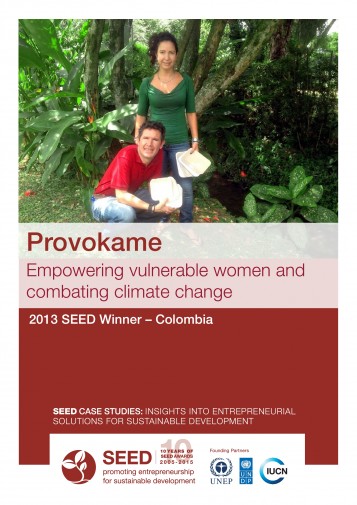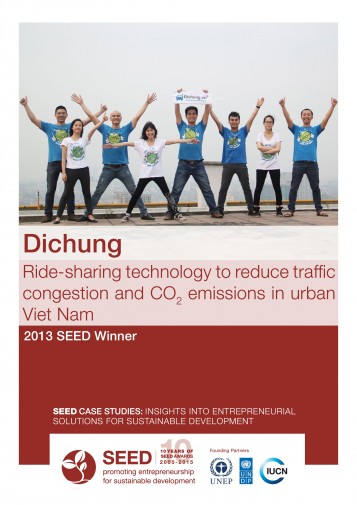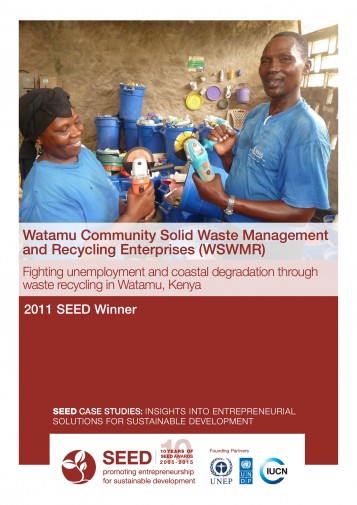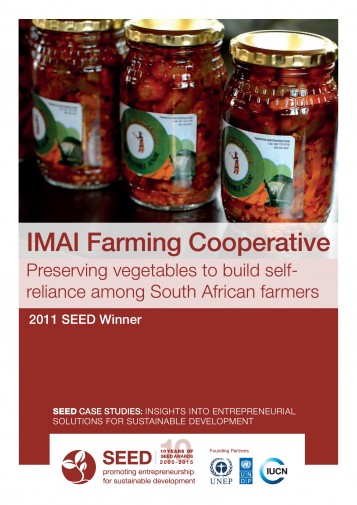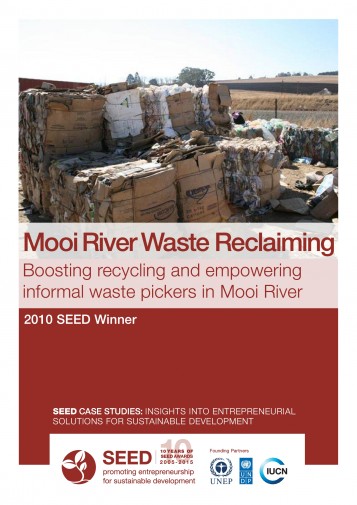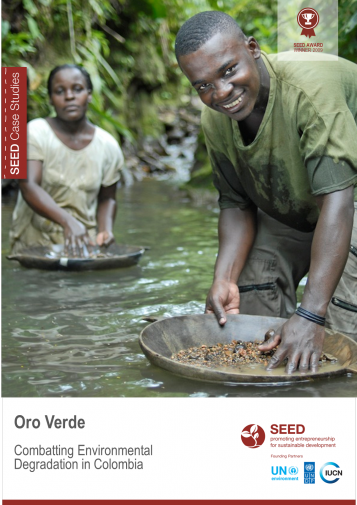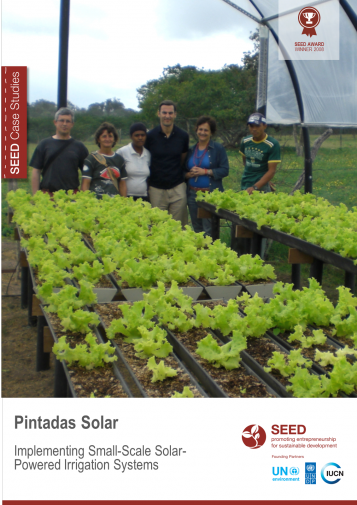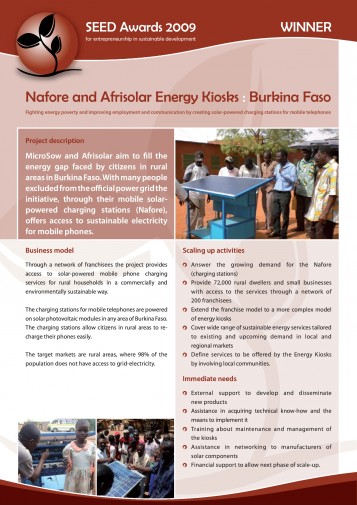Case Study: Sahelia Solar
Published: 07 September 2018
Sahelia Solar is an eco-inclusive enterprise located in Ouagadougou, the capital of Burkina Faso, and specialises in the design and supply of a range of solar energy systems. Sahelia Solar operates in three main sectors; residential, commercial and industrial, and offers both pre-pay and pay-as-you-go (PAYG) models. Read more
SDGs:









Case Study: Unique Quality Product Enterprise
Published: 07 September 2018
Unique Quality Product Enterprise (UQE) is an eco-inclusive enterprise located in Tamale in northern Ghana. Its business model is based on a market-leading approach to promote the production and processing of the cereal grain fonio. Read more
SDGs:











Case Study: Safi Organics
Published: 07 September 2018
Safi Organics is an eco-inclusive enterprise that aims to reverse declining agricultural yields, improve the income and food security of local farmers, and provide opportunities for local youth. Read more
SDGs:











Case Study: YICE Uganda
Published: 07 September 2018
Based in Western Uganda, the Youth Initiative for Community Empowerment (YICE) is an eco-inclusive enterprise that provides a variety of agricultural services to smallholder farmers to improve their livelihoods. Read more
SDGs:







Case Study: WASHKing
Published: 07 September 2018
The eco-inclusive enterprise WASHKing aims to eradicate open defecation and poor sanitation in low-income urban communities in Ghana. Read more
SDGs:





Case Study: Belle Verte
Published: 06 July 2018
Belle Verte aims to create a national closed-loop waste management system and raises awareness on the need to reuse and recycle waste through creative workshops. Within a collaborative process, diverse stakeholders collect, sort and upcycle all types of waste products. Read more
SDGs:









Case Study: !Khuin !Kwa Kalahari Experience
Published: 07 September 2016
Khuin !Kwa Kalahari Experience (KK) offers authentic eco-tours within and around the Kgalagadi Transfrontier Park. The enterprise is led by the ‡Khomani San community and the tours embrace the traditions of the ‡Khomani San culture. Read more
SDGs:







Case Study: All Women Recycling
Published: 07 September 2016
All Women Recycling (AWR) is a small business, based in the Southern Suburbs of Cape Town, that has created a unique product to address local social and environmental challenges. Read more
SDGs:











Case Study: Waste to Food
Published: 07 September 2016
Waste to Food has developed a combination of technologies to overcome the widespread disposal of organic waste to landfills in South Africa, while at the same time contributing to employment and food security. Read more
SDGs:









Case Study: Food & Trees for Africa
Published: 07 September 2016
Food and Trees for Africa (FTFA) aims to build healthy and sustainable lives to uplift poor communities out of poverty while addressing environmental degradation and climate change. Read more
SDGs:









Case Study: Claire Reid Reel Gardening
Published: 07 September 2015
Reel Gardening addresses food insecurity among low-income household and children by offering bio-degradable paper strips embedded with organic seeds that can be used by all to produce a wide range vegetables and herbs. Read more
SDGs:







Case Study: Tambul Leaf Plates
Published: 07 September 2015
Tambul Leaf Plates has generated employment or additional income for 3,000 rural community members while reducing pollution from plastic and polystyrene foam plates by over 100 tonnes. Read more
SDGs:











Case Study: Muthi Futhi
Published: 07 September 2015
Muthi Futhi protects local biodiversity by cultivating and processing endangered indigenous medicinal plants. Read more
SDGs:









Case Study: BanaPads
Published: 07 September 2015
BanaPads produces affordable, effective and hygienic sanitary pads for women in Uganda, made from the natural fibres of banana plant trunks that are an abundant organic waste in agriculture. Read more
SDGs:









Case Study: Solar Sister
Published: 07 September 2015
Solar Sister addresses energy poverty in rural Uganda, Nigeria And Tanzania by providing clean energy products to off-grid communities, while at the same time combatting climate change. Read more
SDGs:











Case Study: Muliru Farmers
Published: 07 September 2015
Muliru Farmers establishes sustainably-farmed supplies of medicinal plants and raises awareness about forest management which reduces the pressure on Kenya’s last remaining rainforest. Read more
SDGs:









Case Study: Eco Post
Published: 07 September 2015
EcoPost produces posts and building materials from recycled plastic waste in Nairobi. This reduces pollution, preserves forests, and decreases greenhouse gas emissions. Read more
SDGs:







Case Study: Provokame
Published: 07 September 2015
Provokame produces biodegradable plates out of natural fibre and seeds and recycles paper; this reduces pollution from polymer plates and decreases greenhouse gas emissions. Read more
SDGs:













Case Study: Dichung
Published: 07 September 2015
Dichung reduces urban traffic congestion, fuel consumption and in turn GHG emissions by providing ride-sharing opportunities for city residents. Read more
SDGs:







Case Study: Watamu Community Solid Waste Management and Recycling Enterprises
Published: 07 September 2015
Watamu Solid Waste Management and Recycling helps conserve coastal and marine biodiversity by recycling plastic and glass waste. Read more
SDGs:







Case Study: IMAI Farming Cooperative
Published: 07 September 2015
IMAI reduces food waste and creates income opportunities by producing and marketing vegetable atchar pickle made from surplus horticultural produce. Read more
SDGs:











Case Study: Mooi River Waste Reclaiming
Published: 07 September 2015
Mooi River Waste Reclaiming contributes towards climate change mitigation, conservation, and reduction of air, land and marine pollution by collecting, compacting and selling recyclable waste. Read more
SDGs:











Case Study: Oro Verde
Published: 07 September 2012
Oro Verde reverses environmental degradation caused by uncontrolled mining in Colombia’s Chocó Bioregion by developing certified responsible mining practices. Read more
SDGs:











Case Study: Pintadas Solar
Published: 07 September 2012
Pintadas Solar creates sustainable and replicable models geared towards improving livelihoods and climate resilience in areas where agriculture and pasture is the main economic activity. Read more
SDGs:









Case Study: Nafore and Afrisolar Energy Kiosks
Published: 07 September 2012
The Nafore and AfriSolar Energy Kiosks were created to address rural electrification challenges in Burkina Faso. Read more
SDGs:








